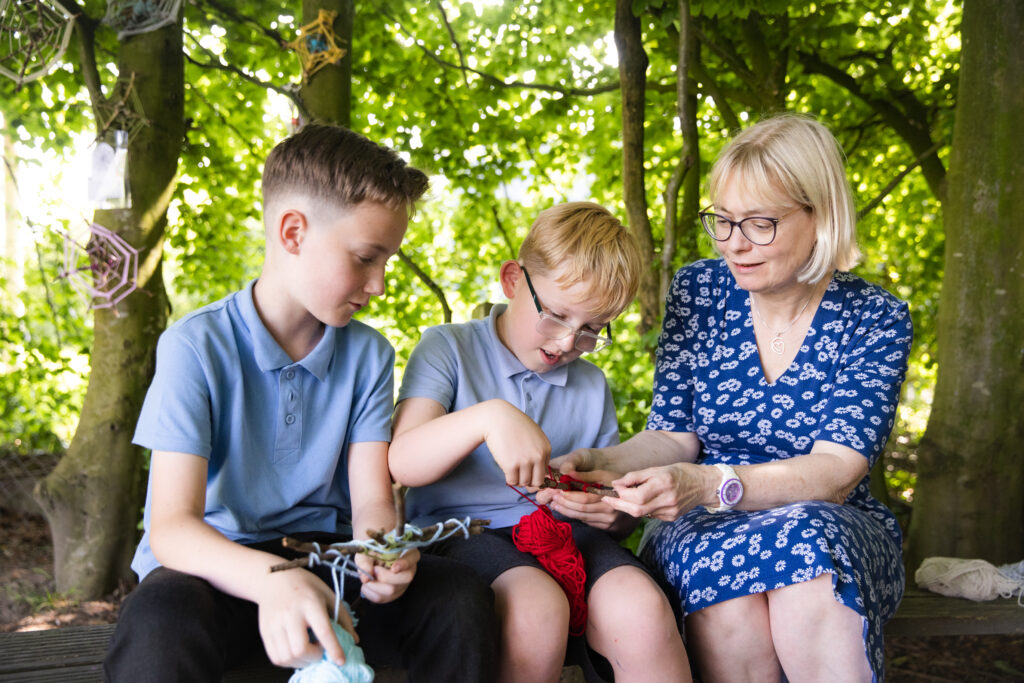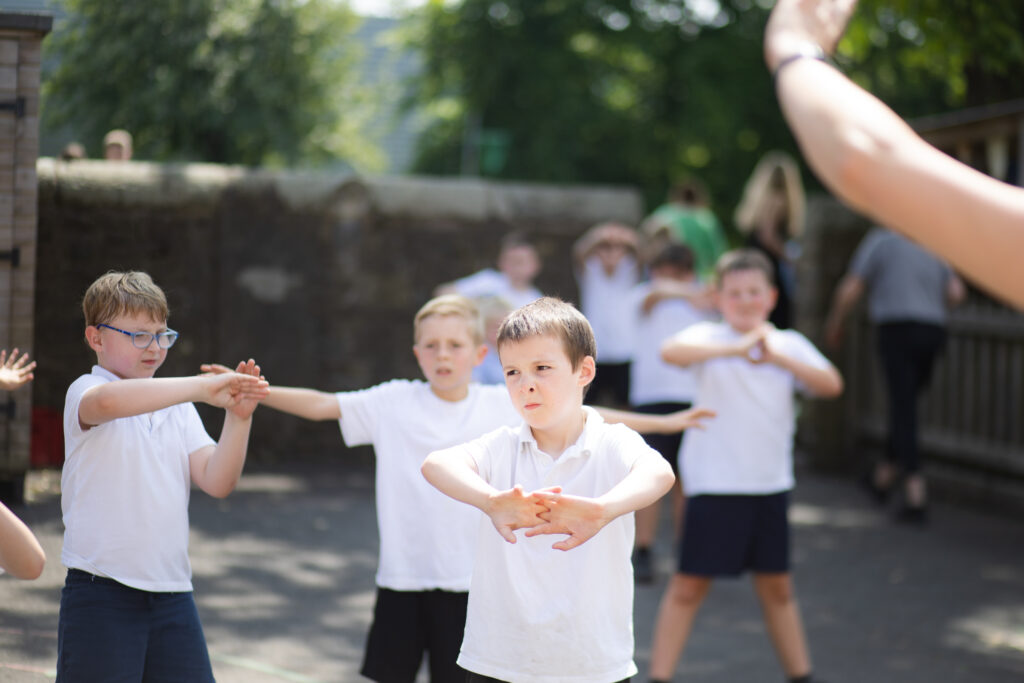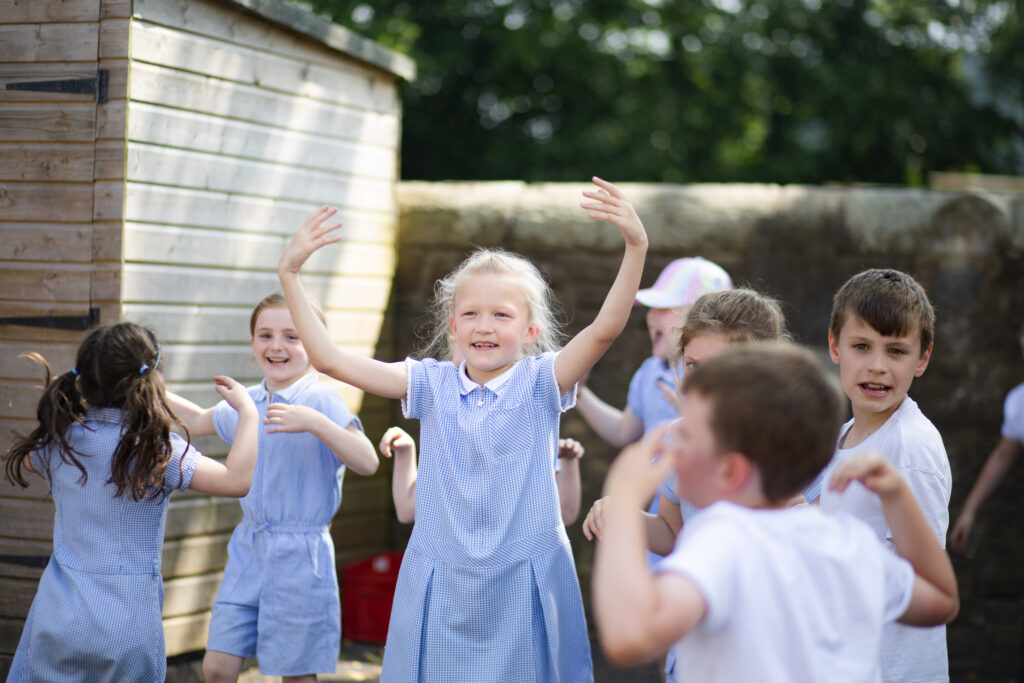At Altham St. James’ CE Primary School, we believe that PSHE and RSE helps to give pupils the knowledge, skills and understanding they need to lead confident, healthy, independent lives, in order to become informed, active and responsible citizens. All aspect will be taught in an age-appropriate way.
Aims
- To promote physical, emotional and mental health.
- To provide knowledge to help children understand their own and others’ rights in the wider political world.
- To provide children with opportunities to develop an awareness of being a good citizen as part of a larger community.
- To involve staff, children, parents and governors in promoting this policy.
Objectives
- To provide opportunities for children to develop confidence and responsibilities enabling them to make the most of their abilities.
- To prepare children to play an active role as citizens in a democratic society.
- To help children develop healthy and safe lifestyles and understand how to help keep others safe and make decisions when faced with choices.
- To aid the development of good relationships and teach children to respect the differences between people.
- To ensure staff are provide with training on up to date initiatives in school
Curriculum Design
Personal and Social Education is taking place all the time in school. It is reflected in the ethos of the school, the nature of relationships with, and between staff, the displays in school and the outside environment of the school. The staff also teach PSHE in class, groups and support groups. It is taught in the following ways:
- In the classroom as a discrete subject
- In the classroom as part of the broader curriculum
- In assemblies
- On school visits
- By visitors to school
- Through curriculum enrichment. For example, raising money for charity or taking part in local community ventures

In planning the curriculum, staff at Altham St. James’ provide:
- a classroom climate that encourages a high level of interest for all children
- opportunities for personal growth outside the classroom through responsibility, extra-curricular activities and educational visits
- Opportunities for personal, social, health and citizenship development through individual and group work, discussion and role-play
- involvement in a range of problem solving activities
- preparation and presentation of tasks for different audiences
- positive self-assessment
- positive marking, with oral or written comments
- active participation in the community served by the school
Teaching and Learning across the Curriculum
PSHE can be taught across the curriculum through a variety of subjects. The following curricular links show where some of the PSHE objectives are taught,
- Literacy – skills in enquiry and communication, the use of stories illustrating aspects of PSHE.
- Numeracy – aspects of financial capability, counting and sharing.
- Science – drugs (including medicines), healthy eating, keeping healthy, safety and the environment.
- Religious Education – religious and moral beliefs, values and practices that underpin and influence personal and social issues and relationships.
- Physical Education – teaching and learning about health and safety, development of personal and social skills through team and individual activities, promotion of healthy lifestyles and the importance of exercise.
- Geography – topical issues concerning the environment, study of own locality and the wider world, including less economically developed countries.
- History – looking at reasons behind historical events, changes and diversity within society, significant people, events, ideas and experiences of people from the past.
- ICT – communicating with others, keeping safe online.
- Design and Technology – health and safety, healthy eating, use of technology, realizing the needs of people through designs.
- Art and Design – reflecting on and responding to ideas and experiences communicated through works of art, craft and design from different times and cultures.
- Music – making the most of abilities in playing and singing, cultural diversity, expression.
- Forest School activities- skills in communication, team building and problem solving
- In the Foundation stage our early learning goals involve the children learning about keeping safe and secure developing an understanding of what is right and wrong and why as well as beginning to consider the consequences of their own actions. They also begin to recognise the importance of keeping healthy and those things that can contribute to this.
We also recognise that effective provision of PSHE needs to include discrete teaching in order to ensure full coverage of the Framework at key stages 1 and 2. In school we follow the Discovery Education Health and relationships Programme of Study.

We also include mindfulness and yoga in our classroom practice.

In order to teach the children to be resilient learners, we use and talk to the children about building learning power (BLP).
We also use ‘My Hidden Chimp’ by Professor Steve Peters (author of the Chimp Paradox). This focuses on helping the children to understand and manage their emotions, thinking and behaviour with ten helpful habits:
- Smiling
- Saying sorry
- Being kind to someone
- Talking about your feelings
- Asking for help
- Showing good manners
- Trying new things
- Accepting when “no” really means no!
- Learning to share
- Doing what you have to do
